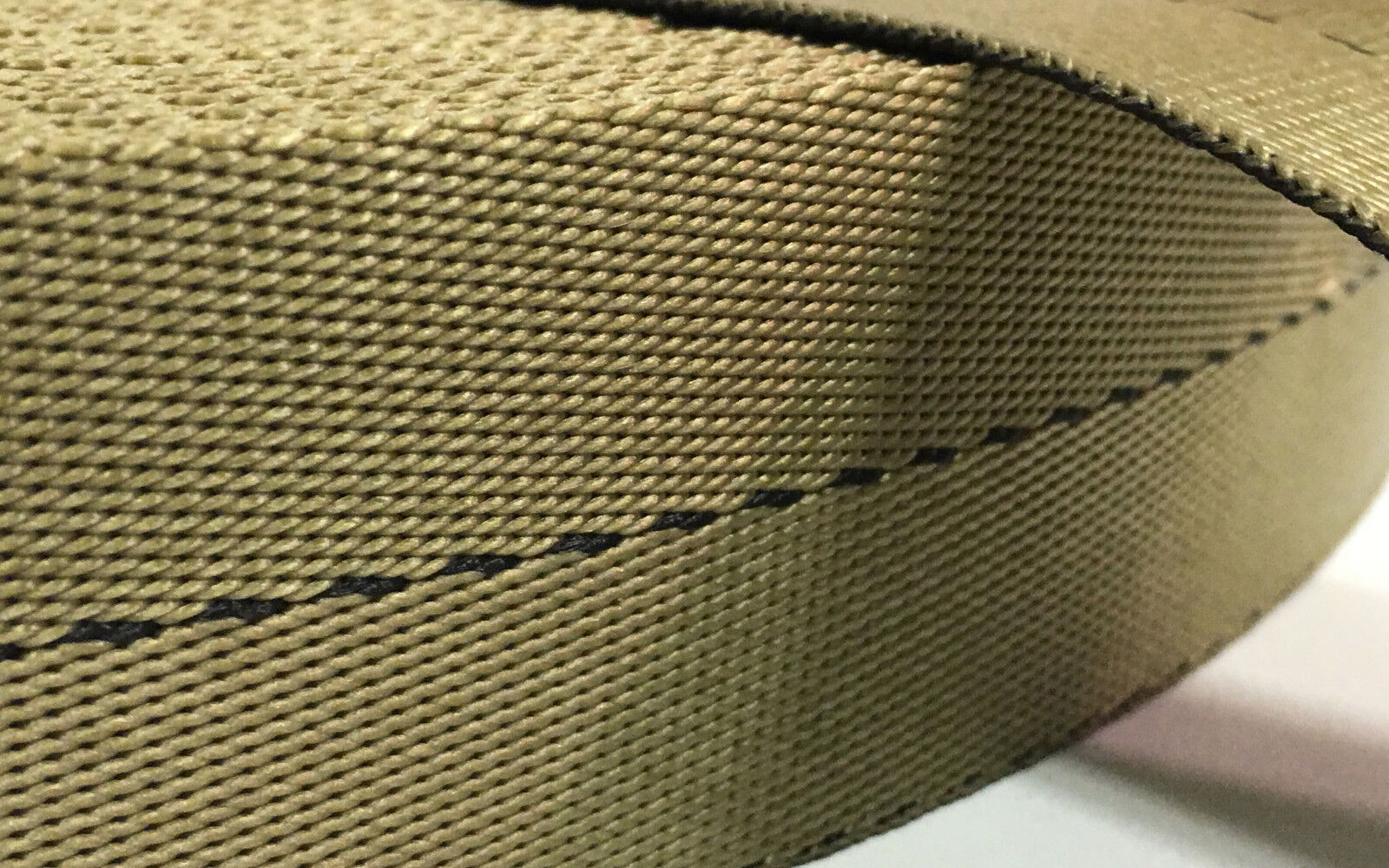MIL-W-4088 is a versatile material widely used in various industries due to its exceptional properties. This article explores the applications and manufacturing process of MIL-W-4088, shedding light on its significance in different sectors.
Applications of MIL-W-4088
MIL-W-4088 finds extensive use across multiple industries, owing to its unique characteristics and performance advantages. Here are some notable applications of MIL-W-4088:
Military use:
Webbing has wide applications for military use on land, sea, and air. It is perfect for parachute harnesses, cargo netting, straps, carrying and drag handles, tactical, rescue, medical, and much more. It comes in all Federally approved and PMS colors and designs. Various camo patterns are available as well.
Safety harnesses:
Whether you’re looking for fire and rescue harnessing, construction and industrial safety, or recreational uses, this product has no comparison. It can accommodate design, abrasion, resistance, and comfort standards. It is durable, reliable, and made with global sustainability in mind.
Aerospace Industry:
In the aerospace sector, MIL-W-4088 is employed in the manufacturing of components such as gaskets, seals, and insulators. The material’s high-temperature resistance, excellent chemical stability, and resistance to wear and tear make it suitable for critical applications in aircraft engines, turbines, and other aerospace systems.
Automotive Industry:
Due to its superior mechanical properties, MIL-W-4088 is utilized in the automotive sector for various purposes. It is used in the fabrication of gaskets, seals, and O-rings, ensuring leak-proof connections in engines and transmissions. MIL-W-4088’s resistance to oils, fuels, and chemicals makes it a reliable material in the automotive industry.
Electronics and Electrical Engineering:
MIL-W-4088 is also employed in electronics and electrical applications. Its electrical insulation properties make it an ideal choice for manufacturing cable insulation, connectors, and switches. The material’s resistance to high temperatures and fire enhances safety and reliability in critical electronic systems.
Industrial Manufacturing:
In industrial settings, MIL-W-4088 serves multiple purposes. It is used for fabricating conveyor belts, seals, gaskets, and other components that require durability and resistance to harsh environments. The material’s resistance to abrasion, chemicals, and extreme temperatures ensures optimal performance in demanding manufacturing processes.
MANUFACTURING MIL-W-4088
Manufacturing Process of MIL-W-4088:
The manufacturing process of MIL-W-4088 involves several steps to achieve the desired material properties. Although variations may exist, the general manufacturing process includes the following stages:
Polymer Selection:
The process begins with the selection of suitable polymers, often thermosetting materials, which possess the desired properties for MIL-W-4088. Polymers such as silicone, fluorocarbon, and nitrile are commonly utilized due to their excellent resistance to temperature, chemicals, and mechanical stress.
Mixing and Compounding:
The selected polymer is mixed with various additives and fillers to enhance specific properties. Additives such as curing agents, accelerators, and stabilizers are incorporated into the polymer matrix. Fillers like carbon black or glass fibers are added to improve strength, dimensional stability, and other mechanical characteristics.
Preforming:
The compounded mixture is then preformed into the desired shape or size, typically using techniques like extrusion or compression molding. This step ensures that the material is ready for further processing.
Curing:
The preformed material is subjected to a curing process to achieve its final properties. Curing involves the application of heat, pressure, or both, depending on the specific requirements of the polymer. This step allows the polymer to undergo cross-linking, resulting in improved strength, chemical resistance, and thermal stability.
Finishing and Quality Control:
After curing, the MIL-W-4088 material undergoes finishing processes such as cutting, grinding, and surface treatment to achieve the desired dimensions and surface characteristics. Quality control measures are implemented throughout the manufacturing process to ensure that the final product meets the required specifications and standards.
Conclusion:
MIL-W-4088, with its exceptional properties and versatility, plays a crucial role in various industries. Its applications in aerospace, automotive, electronics, and industrial manufacturing highlight its significance. The well-defined manufacturing process ensures the production of high-quality MIL-W-4088 materials that meet stringent industry standards.
In conclusion, MIL-W-4088 is a highly valuable material with a wide range of applications across diverse industries. Its exceptional properties, including high-temperature resistance, chemical stability, durability, and electrical insulation, make it an ideal choice for critical components and systems. The aerospace, automotive, electronics, and industrial manufacturing sectors heavily rely on MIL-W-4088 for its reliability and performance.
The manufacturing process of MIL-W-4088 involves careful selection of suitable polymers, compounding them with additives and fillers, preforming the material, curing it through heat and pressure, and finally, applying finishing touches. These steps ensure the material’s desired properties and dimensional accuracy, meeting the specific requirements of different applications.
Quality control measures are implemented throughout the manufacturing process to ensure consistent and reliable MIL-W-4088 materials. Stringent testing, inspection, and adherence to industry standards guarantee that the final products meet the highest performance criteria and comply with regulatory requirements.
As industries continue to advance and demand materials with superior properties, MIL-W-4088 will likely remain a sought-after material. Ongoing research and development efforts aim to further enhance its characteristics and explore new applications. The versatility, reliability, and performance of MIL-W-4088 make it an indispensable material in various sectors, contributing to the advancement and success of numerous industries.
In conclusion, MIL-W-4088’s exceptional properties and its diverse range of applications, coupled with a well-defined manufacturing process and strict quality control, make it an indispensable material in various industries. Its use in aerospace, automotive, electronics, and industrial manufacturing sectors showcases its significance and reliability. As technology advances, MIL-W-4088 will continue to play a vital role in meeting the demanding requirements of modern applications, contributing to the progress and success of multiple industries.

